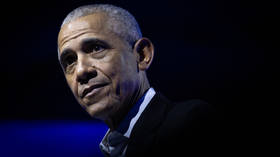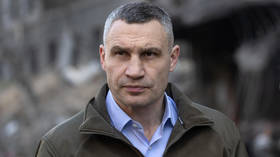Promise of better life: tricked into India’s sex-slave trade
Campaigners in India are demanding that authorities step-up efforts to battle what has become a real plague for the country - sex-trafficking.
Hundreds of thousands of girls from poor families are being brought to major cities like Mumbai with promises of good jobs, but ending up in brothels.
That is exactly what happened to Rashmi. She is young but she has gone through more than most girls her age. Rashmi was coerced to leave her village for the bright lights of Mumbai only to find she was heading for life in a brothel.
“He said he would sell me off once we reached Mumbai,” she says about the man responsible for her ordeal.
With little value placed on girls from poor families, it is thought more than a quarter of a million women are trafficked in India each year. Some are as young as nine, and come from the rural areas of neighboring Nepal.
The parents of the victims do not always realize what the world outside their home is like, says Ruchira Gupta, the president of an anti-trafficking NGO called Apne Aap (which means self-help in Hindi).
”The parents may know a little bit about what Bombay [Mumbai] is if there is television in the village. To them Bombay represents a lifestyle rather than a brothel, and the difference between hunger and food and a job,” she explains.
It is easy to cross the border between India and Nepal. There are well established routes for trafficking.
“India is the epicenter of the sex trafficking industry right now in the world. The reason is that there is low enforcement of laws against traffickers, pimps and johns,” says Ruchira Gupta.
In the northern state of Bihar, rescue groups keep an eye on the trains passing through.
”It's not easy,” confesses Sita, one of the social workers. “When we ask youngsters where they are going, they say they are going to study. If a girl is traveling with a boy, she says he is her brother. But when we demand their identity cards, we see they aren't related.”
“We have no work in our village. I have two young children and when I was promised a job in Mumbai, I decided to take up the offer,” one of the rescued women says.
It is an easy to convince young girls in a village hundreds of kilometers away that they can make it big in Mumbai.
“Girls are misled by people offering them jobs in big cities,” says Bihar Police Inspector A.K. Gupta. “Some are convinced that they can be a part of a dance group, and are conned into coming to India.”
Taking into account the gravity and the sheer size of the problem, campaigners want to see villagers in Nepal given more warnings of the dangers, and the police more active in clamping down on traffickers.














